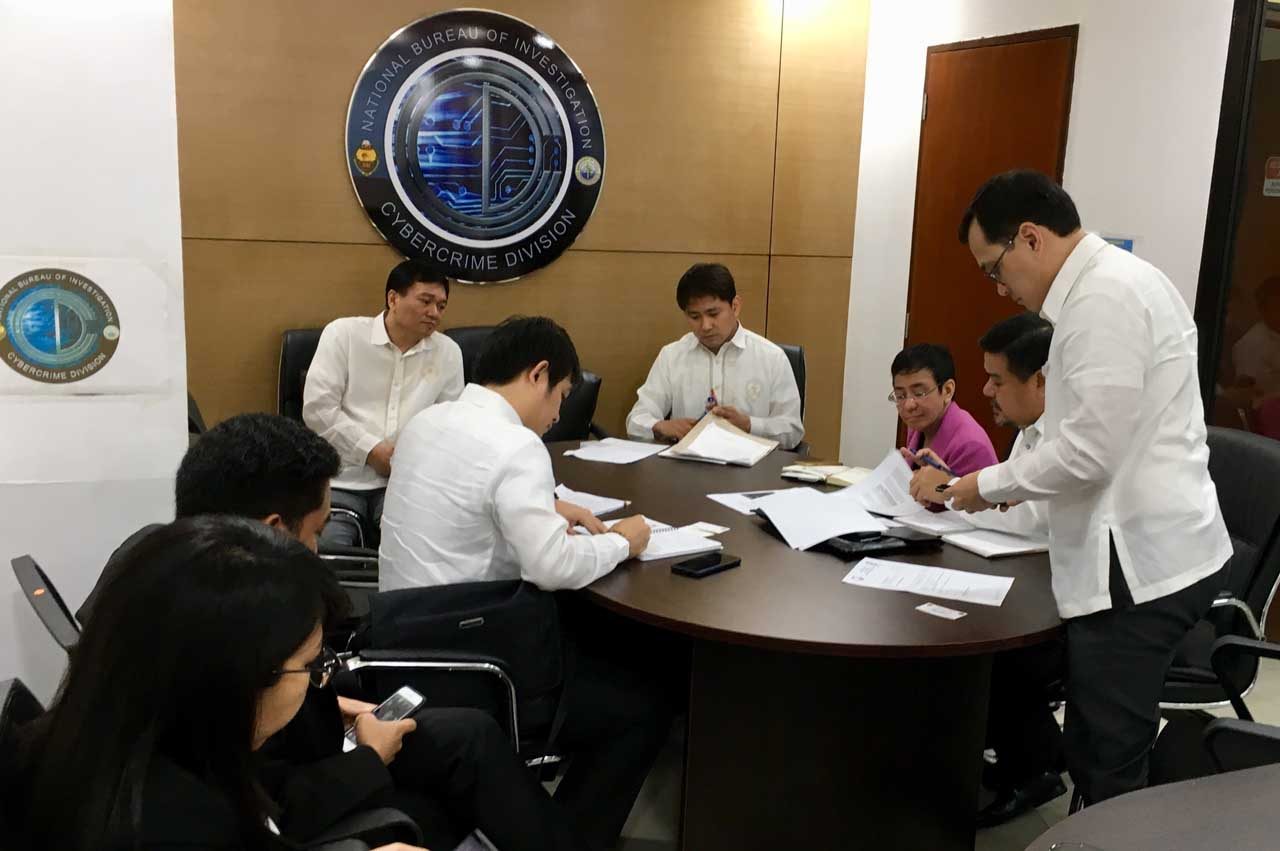SUMMARY
This is AI generated summarization, which may have errors. For context, always refer to the full article.

MANILA, Philippines (UPDATED) – If the Department of Justice (DOJ) charges Rappler with cyber libel over a May 2012 article, it risks rendering the Cybercrime Prevention Act unconstitutional, cybercrime law expert Jose Jesus “JJ” Disini said on Friday, March 9.
Rappler learned on Friday that the National Bureau of Investigation (NBI) had transmitted to the DOJ a cyber libel complaint against its officers and reporter, despite previously dismissing it for lack of basis.
Disini is Rappler’s lawyer in the cyber libel case. He is a known expert in cybercrime and technology law, and was a petitioner at the Supreme Court (SC), where he secured a temporary restraining order (TRO) against the law in 2012.
What’s the case about? It stems from a May 2012 article written by Reynaldo Santos Jr about the late former chief justice Renato Corona using an SUV owned by businessman Wilfredo Keng.
Keng filed the complaint before the NBI in October 2017 or 5 years after publication. The publication also came 4 months before the Cybercrime Law was enacted in September 2012.
What is the rule on prescriptive period? The Cybercrime Law of 2012 doesn’t change the definition of libel penalized under Article 355 of the Revised Penal Code (RPC). It only classifies cyber libel as ordinary libel committed online.
Article 90 of the Revised Penal Code says the “crime of libel or other similar offenses shall prescribe in one year.”
Earlier, NBI Cybercrime Chief Manuel Antonio Eduarte said that the bureau’s legal and evaluation service found no basis to proceed with the complaint because the one-year prescriptive period had lapsed.
The NBI filed the case anyway. Eduarte and NBI Director Dante Gierran could not be reached for comment or more information.
Why would it be unconstitutional? Article III, Section 22 of the Constitution says “no ex post facto law or bill of attainder shall be enacted.”
An ex post facto law punishes an act which was otherwise innocent before the law was passed.
“The crime of online libel didn’t exist in May 2012. If the respondents are charged by the government, it would make the cybercrime act an ex post facto law and unconstitutional,” Disini said.
“Because in effect it will be made to apply to acts committed before the law went into effect in 2012,” he added.
How about the theory of continuing crime? In its transmittal letter to the DOJ, the NBI said that libelous online articles are “indubitably considered as a continuing crime” unless they are taken down.
“There’s no legal basis to that theory, there is no Supreme Court decision,” Disini said.
Disini added that if this theory is upheld, it will set a dangerous precedent not just for journalists but for any entity publishing anything on the internet.
“This will mean there will be no end to libel suits,” Disini said. (READ: What’s the right to be forgotten? Cyber libel complaint vs Rappler sparks discussion)
What do the two laws say? There are two laws on libel: the Revised Penal Code (RPC) and the Cybercrime Law of 2012.
The two laws define a libelous act similarly but differ on one key point: penalty.
Under the RPC, libel’s penalty is arresto mayor equivalent to 1-6 months of prison time. Under the Cybercrime Law, libel’s penalty is prision mayor – a higher penalty – equivalent to 6-12 years in prison.
When Eduarte first announced the dismissal of the complaint, he said that: “Even if itinaas ang penalty, ang prescriptive period hindi tataas, one year pa rin ((Although the penalty was increased, the prescriptive period remains to be one year.)”
This is where Keng’s lawyers seem to be criss-crossing between two statutes. If they charge Rappler under the RPC, the one-year prescriptive period is clear.
If they charge Rappler under the 2012 Cybercrime Law, they will have to argue against the long-enshrined rule that no criminal law can be retroactive.
In recommending the case for prosecution by the DOJ, the NBI noted that Keng filed a supplemental affidavit after the NBI’s legal service dismissed it, invoking the provision in Article 90 of the RPC that says “crimes punishable by other afflictive penalties shall prescribe in fifteen years.”
The penalty of prision mayor is categorized under “afflictive penalties” or the most severe of penalties available.
“I think they realize the case is weak if they pursue it under the Revised Penal Code which explains why they’re bending legal concepts to make a case for cyber libel under the Cybercrime Prevention Act,” Disini said.
Disini added that the theory of continuing crime is a way to dodge the constitutional prohibition on ex post facto laws.
“Our case relies on the Constitution, theirs relies on a theory that has no legal basis for now,” Disini said.
We also reached out to Keng’s lawyer Joseph Banguis but he has not responded to our query.
In a statement on Friday, Rappler questioned why the NBI would “risk its credibility and reputation, and reverse its earlier ruling.”
“Are there instructions from higher-ups whom NBI officials could not say no to?” it said.
The cyber libel case is the latest in a string of cases filed against Rappler, including tax evasion. Rappler has slammed the moves as pure harrassment and part of attempts to muzzle the press. – Rappler.com
Add a comment
How does this make you feel?
There are no comments yet. Add your comment to start the conversation.